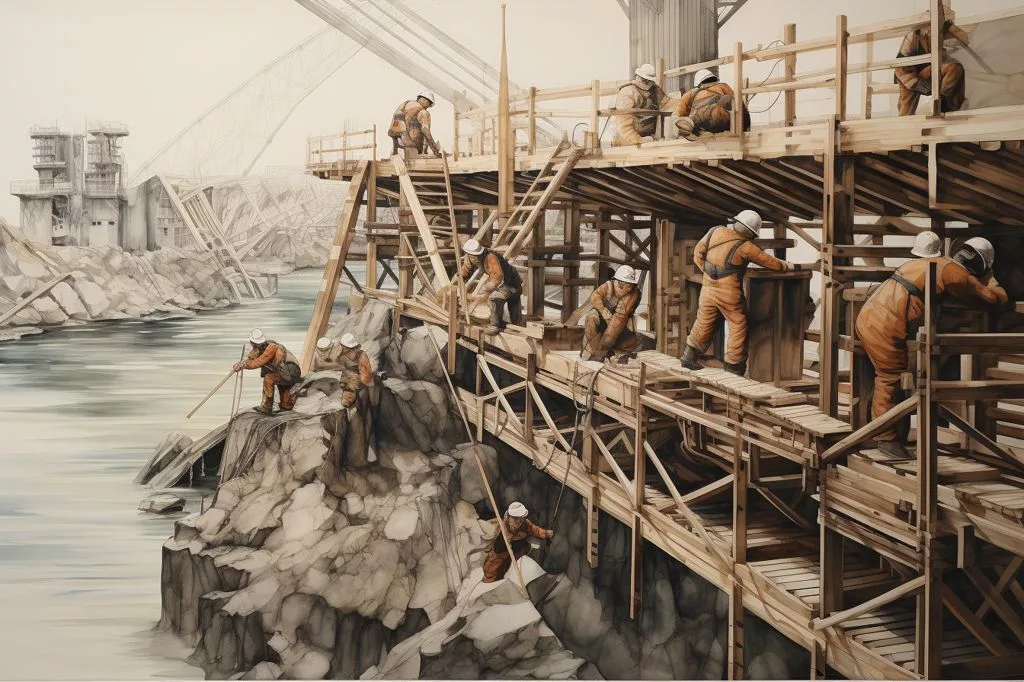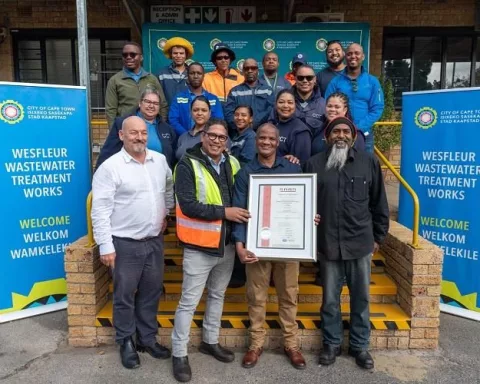The Western Cape Government has made significant progress in repairing the road infrastructure damaged by storms and flooding during the Heritage long weekend. Premier Alan Winde and his team adopted a proactive approach to evaluate the situation and implement effective solutions. Engineers, construction crews, and public works officials joined forces to ensure that critical repairs were completed promptly and with high-quality standards. The ongoing efforts to restore the road infrastructure have also had a positive impact on the region’s economy. The Western Cape Government’s response highlights the potential of collaborative efforts when government, experts, and citizens work together to achieve a common goal.
How did the Western Cape Government respond to the road infrastructure damage caused by storms and flooding during the Heritage long weekend?
The Western Cape Government responded to the road infrastructure damage caused by storms and flooding during the Heritage long weekend by adopting a proactive approach to evaluate the situation and implement effective solutions. Officials conducted thorough inspections of affected roadways and bridges, and engineers, construction crews, and public works officials joined forces to ensure that critical repairs were completed promptly and with high-quality standards. Regular updates were provided to the media and the public, and the ongoing efforts to restore the road infrastructure have also had a positive impact on the region’s economy.
A Unified Response to Infrastructure Damage
The Western Cape Government has shown the power of collaboration and response by making significant progress in repairing the road infrastructure damaged by storms and flooding during the Heritage long weekend. On October 25th, Premier Alan Winde, Cabinet members, and government officials came together to provide updates on the progress made in the past three weeks.
The storms during the Heritage long weekend left a number of the region’s roads in poor condition, resulting in safety hazards and obstacles to daily transportation. This presented an opportunity for the Western Cape Government to showcase its dedication to public service and resilience in the face of adversity.
Premier Alan Winde and his team adopted a proactive approach to evaluate the situation and implement effective solutions. Officials conducted thorough inspections of affected roadways and bridges to assess the extent of the damage, which allowed for proper allocation of resources and prioritization of repairs.
Collaboration and Transparency Drive Success
The Western Cape Government’s response combined technical expertise with teamwork, as engineers, construction crews, and public works officials joined forces to ensure that critical repairs were completed promptly and with high-quality standards. This collaborative effort has proven that teamwork and determination are essential components in overcoming challenges.
The government’s commitment to improving road infrastructure has been recognized and appreciated by the citizens of Western Cape. The swift action and dedication to create a safer environment have led to increased confidence in daily commutes and trust in the government’s hard work on behalf of its people.
Throughout the repair process, the Western Cape Government has exhibited a commendable level of transparency and responsiveness to its constituents. Regular updates have been provided to the media and the public, allowing everyone to stay informed about the progress of the repairs. This openness has cultivated an environment of trust and accountability, further enhancing the relationship between citizens and their government.
Economic and Social Impacts of Infrastructure Recovery
The ongoing efforts to restore the road infrastructure have also had a positive impact on the region’s economy. The mobilization of construction crews and the procurement of necessary materials have stimulated local businesses, contributing to the area’s economic growth. This demonstrates the far-reaching benefits of infrastructure improvements beyond the immediate task at hand.
The response to the Heritage long weekend storms highlights the potential of collaborative efforts when government, experts, and citizens work together to achieve a common goal. By setting an example for other regions to follow, the Western Cape has shown that adversity can be transformed into an opportunity for growth and progress.
The journey towards recovery for the Western Cape’s road infrastructure has been challenging, but determination and teamwork have led to significant improvements. As the region continues to move forward, this united effort serves as an inspiring example of what can be accomplished when diverse individuals come together for the greater good. It also serves as a reminder that community and cooperation are essential for success in times of adversity.
A Strengthened Community through Infrastructure Restoration
The process of rebuilding the Western Cape’s damaged roads has been a complex endeavor, but the rapid progress made thus far is a testament to the power of unity. By working together, the Western Cape Government, its officials, and the community at large have made remarkable strides in restoring the safety and functionality of the region’s infrastructure. This joint effort has not only contributed to the well-being of the area’s residents but has ultimately reinforced the sense of community that binds them together.
As the Western Cape continues its journey towards complete infrastructure recovery, the success stories and lessons learned serve as a beacon of hope for other regions facing similar challenges. With determination, cooperation, and a shared purpose, any obstacle can be overcome, and progress can be achieved for the collective benefit of all.
1. What caused the road infrastructure damage in Western Cape?
The road infrastructure damage in Western Cape was caused by storms and flooding during the Heritage long weekend.
2. How did the Western Cape Government respond to the road infrastructure damage?
The Western Cape Government responded to the road infrastructure damage by adopting a proactive approach to evaluate the situation and implement effective solutions. Officials conducted thorough inspections of affected roadways and bridges, and engineers, construction crews, and public works officials joined forces to ensure that critical repairs were completed promptly and with high-quality standards.
3. What was the impact of the ongoing efforts to restore the road infrastructure?
The ongoing efforts to restore the road infrastructure have had a positive impact on the region’s economy. The mobilization of construction crews and the procurement of necessary materials have stimulated local businesses, contributing to the area’s economic growth.
4. How did the Western Cape Government showcase its dedication to public service and resilience in the face of adversity?
The Western Cape Government showcased its dedication to public service and resilience in the face of adversity by making significant progress in repairing the road infrastructure damaged by storms and flooding during the Heritage long weekend.
5. What was the Western Cape Government’s approach to assess the extent of the damage and prioritization of repairs?
The Western Cape Government’s approach to assess the extent of the damage and prioritization of repairs was to conduct thorough inspections of affected roadways and bridges.
6. What role did collaboration play in the restoration of the road infrastructure?
Collaboration played a crucial role in the restoration of the road infrastructure as engineers, construction crews, and public works officials joined forces to ensure that critical repairs were completed promptly and with high-quality standards.
7. How did the Western Cape Government maintain transparency and responsiveness throughout the repair process?
The Western Cape Government maintained transparency and responsiveness throughout the repair process by providing regular updates to the media and the public, allowing everyone to stay informed about the progress of the repairs.
8. What lesson can be learned from the Western Cape Government’s response to the road infrastructure damage?
The lesson that can be learned from the Western Cape Government’s response to the road infrastructure damage is that collaborative efforts are essential when government, experts, and citizens work together to achieve a common goal. By setting an example for other regions to follow, the Western Cape has shown that adversity can be transformed into an opportunity for growth and progress.








